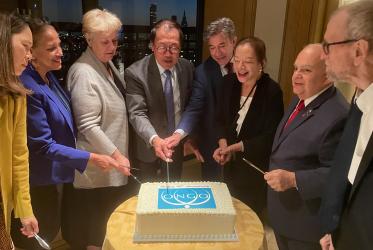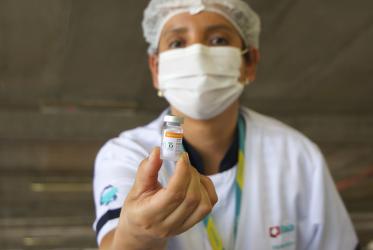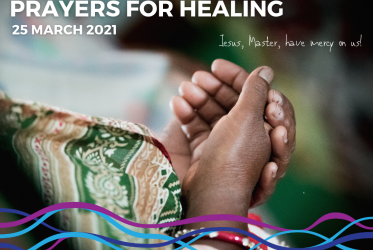Displaying 1 - 20 of 67
What can churches do to prevent modern slavery?
22 February 2024
How racism and colonialism are exacerbating impacts of climate change
29 September 2021
WCC answers your questions about vaccines
26 April 2021
Week of Prayer over COVID-19, Day 4: Prayers for Healing
17 March 2021












